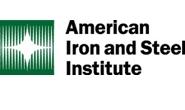Government/Policy

October 31, 2016
AISI Details Foreign Trade Barriers That Harm US Steel Producers
Written by Sandy Williams
AISI, Washington, D.C. (Oct. 27, 2016) – The American Iron and Steel Institute (AISI) today submitted comments to the Trade Policy Staff Committee (TPSC) on USTR’s 2017 National Trade Estimate Report (NTE) on Foreign Trade Barriers. This submission marks the fifth year in a row that AISI has documented the foreign trade barriers that distort global trade for the NTE and are extremely harmful to U.S. companies, particularly those in the steel industry in the United States.
The 60-page document, signed by Kevin Dempsey, AISI’s senior vice president of public policy & general counsel, identifies significant trade barriers and other trade-distorting practices that limit the competitiveness of major U.S. companies. The comments were submitted to TPSC, the inter-agency task force that will review these comments for compilation in the 2017 National Trade Estimate (NTE) report released by USTR. Link to AISI’s full comments to USTR can be found here.
“USTR should include the trade restrictions identified in this submission in its 2017 National Trade Estimate Report on Foreign Trade Barriers, and continue to work toward the elimination of these and other trade barriers worldwide” Dempsey wrote. The AISI comments highlighted:
Export Restrictions – Many countries have enacted substantial barriers to raw material exports in order to ensure an abundant domestic supply, at low prices, for their manufacturers. These export barriers include export quotas, export taxes, and export licensing requirements. Foreign governments use such restrictions to discourage exports of raw materials, promote the development of their domestic industries, and subsidize their domestic downstream industries. Many of the restrictions are inconsistent with World Trade Organization (WTO) agreements.
Import Barriers – Import-restricting policies in foreign countries, such as tariffs and other import charges, quantitative restrictions, import licensing, and customs barriers, can distort trade by protecting a country’s domestic producers from import competition, to the detriment of foreign producers. Import tariffs accomplish this by giving a price advantage to locally produced goods over similar imported goods. Restrictive and opaque or unpredictable import licensing systems can also be used as an obstacle to trade.
Investment Barriers – Restrictions on foreign investment and ownership often unfairly distort global trade and prevent U.S. businesses from taking advantage of potentially lucrative investment opportunities. While the United States maintains a relatively open environment for foreign investors, many other countries continue to impose restrictions on foreign investment within their borders, to the disadvantage of U.S. companies.
Subsidies – Many foreign governments – including in particular China – provide their domestic steel industries with various forms of subsidies, including prohibited export subsidies, giving those industries an unfair advantage in international competition and creating a significant trade barrier for U.S. companies operating globally. Indeed, many subsidies have the consequence of protecting domestic products from foreign competition or artificially stimulating exports of a particular domestic product, thereby displacing U.S. exports in global markets. In addition, heavily subsidized producers introduce market-distorting behavior and other trade and investment imbalances to the global economy.
State Owned Enterprises and Government Intervention – Foreign governments are increasingly using state owned enterprises (SOEs) and other methods of government intervention to unfairly tilt the playing field, both within a country’s borders and in global markets. China, in particular, has created massive state-owned and -controlled national champions that are designed to be competitive on the international stage, and other countries are following suit. The rise in SOEs represents a growing threat to fair trade and the ability of private steel producers to compete globally. SOE investment at home and abroad forces companies to compete directly against foreign governments in markets around the world, creating significant imbalances that harm workers and private companies competing in those markets. These distortions impact U.S. and global steel markets and related upstream and downstream markets, as well as other global industries.







